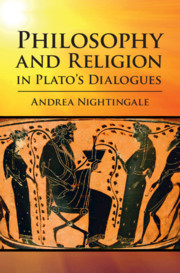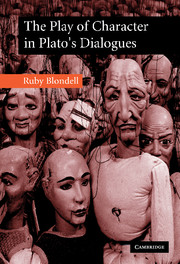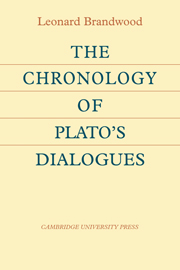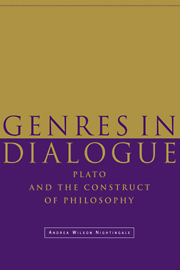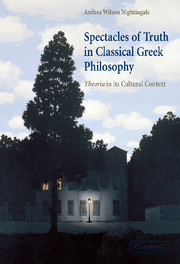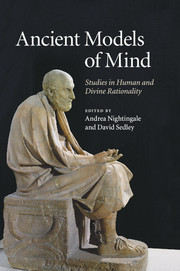Philosophy and Religion in Plato's Dialogues
In ancient Greece, philosophers developed new and dazzling ideas about divinity, drawing on the deep well of poetry, myth, and religious practices even as they set out to construct new theological ideas. Andrea Nightingale argues that Plato shared in this culture and appropriates specific Greek religious discourses and practices to present his metaphysical philosophy. In particular, he uses the Greek conception of divine epiphany - a god appearing to humans - to claim that the Forms manifest their divinity epiphanically to the philosopher, with the result that the human soul becomes divine by contemplating these Forms and the cosmos. Nightingale also offers a detailed discussion of the Eleusinian Mysteries and the Orphic Mysteries and shows how these mystery religions influenced Plato's thinking. This book offers a robust challenge to the idea that Plato is a secular thinker.
- ddot; Explores the interaction of philosophy and religion in Plato's dialogues · Shows that ancient Greek philosophy was not a secular discipline · Argues for the importance of the phenomenon of divine epiphany and of the various Mysteries for understanding Plato's thought
Reviews & endorsements
'Andrea Nightingale has written a scholarly work that will prove indispensable to restoring the centrality of religion and theology to Platonic philosophy.' Marina Berzins McCoy, Journal of the History of Philosophy
Product details
No date availableAdobe eBook Reader
9781108945790
0 pages
This ISBN is for an eBook version which is distributed on our behalf by a third party.
Table of Contents
- Introduction
- 1. The Forms, the Good, and the Divine
- 2. Eternal Longings
- 3. Dialogue of Self and Soul
- 4. Wings of Desire
- 5. The Gods Made Visible
- Conclusion
- Bibliography
- Index.

